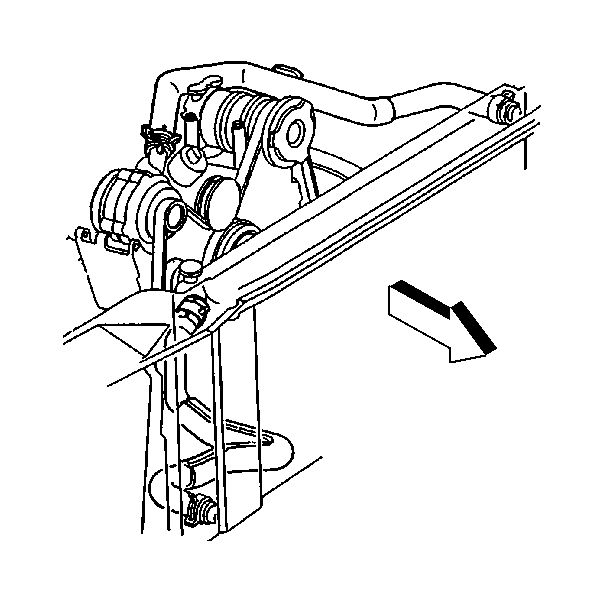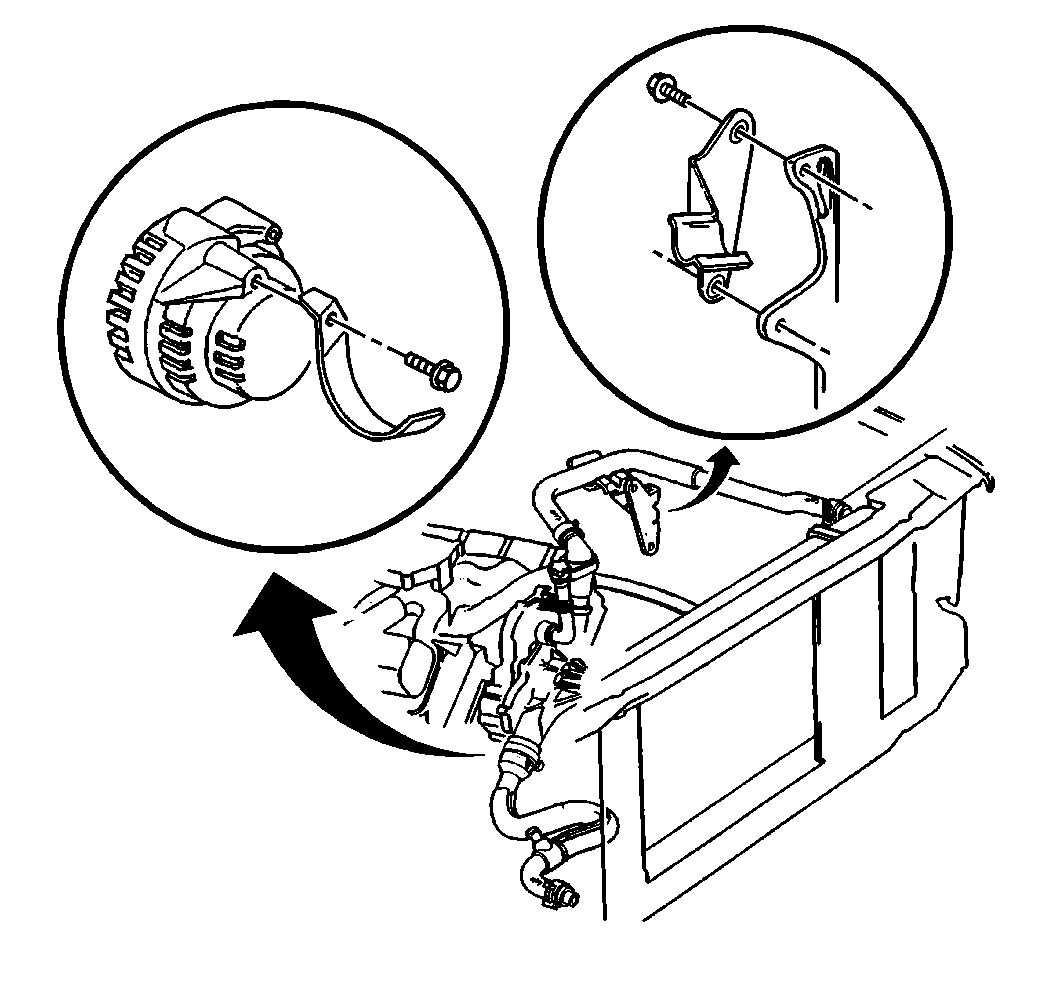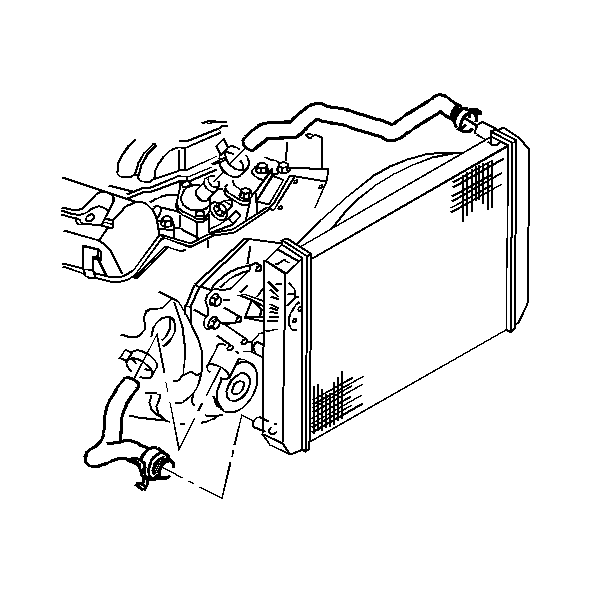Radiator Hose Replacement 5.7L
Removal Procedure
- Drain the coolant from cooling system. Refer to Cooling System Draining and Filling .
- Remove the hose clamps from the inlet and outlet hoses.
- Remove the radiator inlet hose.
- Remove the radiator outlet hose.
Important: Most C/K models use a spring - type clamp at the radiator hose connections. When using this type of clamp, install radiator hoses on dry, non - painted surfaces in order to endsure proper sealing. Reusing the spring - type clamps on aftermarket hoses is not recommended.

Installation Procedure
- Install the radiator outlet hose.
- Install the radiator inlet hose.
- Install the clamps to the radiator inlet and outlet hoses.
- Refill the coolant to the cooling system. Refer to Cooling System Draining and Filling .
- Start the engine. After the engine reaches normal operating temperatutre, inspect for coolant leaks.

Radiator Hose Replacement 7.4L
Removal Procedure
- Drain the coolant from the cooling system. Refer to Cooling System Draining and Filling .
- Remove the hose clamps from the inlet and outlet hoses.
- Remove the radiator inlet hose.
- Remove the radiator outlet hose.
Important: Most C/K models use a spring - type clamp at the radiator hose connections. When using this type of clamp, install radiator hoses on dry, non - painted surfaces in order to ensure proper sealing. Reusing the spring - type clamps on aftermarket hoses is not recommended.

Installation Procedure
- Install the radiator outlet hose.
- Install the radiator inlet hose.
- Install the clamps to the radiator inlet and outlet hoses.
- Refill the coolant to the cooling system. Refer to Cooling System Draining and Filling .
- Start the engine. After the engine reaches normal operating temperature, inspect for coolant leaks.

Radiator Hose Replacement 6.5L Diesel
Removal Procedure
- Drain the coolant from the cooling system. Refer to Cooling System Draining and Filling .
- Remove the clamps.
- Remove the radiator inlet hose.
- Remove the radiator outlet hose.
Important: Most C/K models use a spring - type clamp at the radiator hose connections. When using this type of clamp, install radiator hoses on dry, non - painted surfaces in order to ensure proper sealing. Reusing the spring - type clamps on aftermarket hoses is not recommended.

Installation Procedure
- Install the radiator outlet hose.
- Install the radiator inlet hose.
- Install the clamps.
- Refill the coolant in the cooling system. Refer to Cooling System Draining and Filling .
- Start the engine. After the engine reaches normal operating temperature, inspect for coolant leaks.

Notice: Use the correct fastener in the correct location. Replacement fasteners must be the correct part number for that application. Fasteners requiring replacement or fasteners requiring the use of thread locking compound or sealant are identified in the service procedure. Do not use paints, lubricants, or corrosion inhibitors on fasteners or fastener joint surfaces unless specified. These coatings affect fastener torque and joint clamping force and may damage the fastener. Use the correct tightening sequence and specifications when installing fasteners in order to avoid damage to parts and systems.
Tighten
Tighten the outlet upper clamp bolt to 2.8 N·m (2 lb ft).
Radiator Hose Replacement 5.0L
Removal Procedure
- Drain the coolant from the cooling system. Refer to Cooling System Draining and Filling .
- Remove the radiator inlet hose.
- Remove the radiator outlet hose.
- Remove the clamps from the inlet and outlet radiator hoses.
- Remove the radiator inlet hose.
- Remove the radiator outlet hose.
Important: Most C/K models use a spring-type clamp at the radiator hose connections. When using this type of clamp, install the radiator hoses on dry, non-painted surfaces in order to ensure proper sealing. Reusing the spring-type clamps on aftermarket hoses is not recommended.


Installation Procedure
- Install the radiator outlet hose.
- Install the radiator inlet hose.
- Connect the clamps to the inlet and outlet radiator hoses.
- Refill the coolant in the cooling system. Refer to Cooling System Draining and Filling .
- Start the engine. When the engine reaches normal operating temperature, inspect for coolant leaks.


